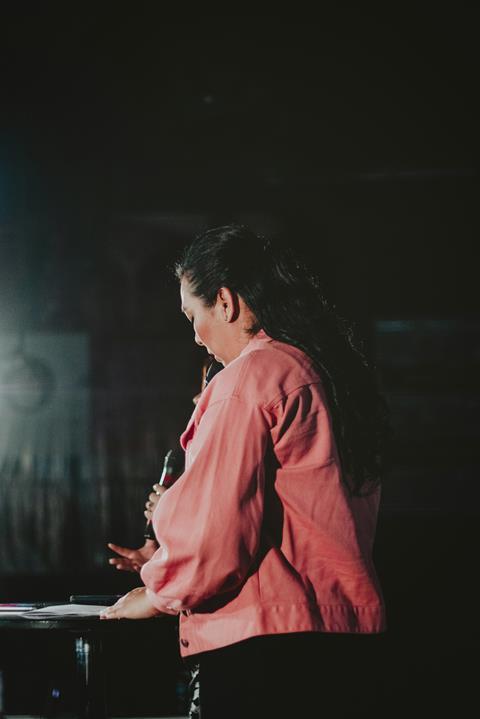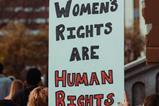‘My observation is that the power of the ‘equal sinfulness’ argument is compelling and can stop us in our tracks. It appeals to our knowledge that all have sinned and fallen short of the glory of God. That is why it is so effective in shutting down important conversations about abuses against women in the Church,’ says Michelle Tant.

Whenever I see an argument for the equal sinfulness of women, one of my first thoughts is that there may be a hidden agenda. The argument is often couched in a passionate plea to remember that “not all men” are responsible for the daily atrocities committed against women locally and globally. On the surface this seems like a reasonable statement and of course as Christians we are aware of our mutual need, both as men and women, for a Saviour.
However, when we only see the argument for ‘equal sinfulness’ as a response to those who raise the issue of patriarchal abuse, it is wise to ask why.
READ MORE: One of the ways the Church can combat abuse is by considering its traditionally male hierarchy
My observation is that the power of the ‘equal sinfulness’ argument is compelling and can stop us in our tracks.
My observation is that the power of the ‘equal sinfulness’ argument is compelling and can stop us in our tracks. It appeals to our knowledge that ALL have sinned and fallen short of the glory of God (Romans 3:23-24). That is why it is so effective in shutting down important conversations about abuses against women in the church. It denies that this is an issue by downplaying the relationship between abuses and the patriarchal system. It then goes on the attack in suggesting that we consider the sins of women to be somehow less sinful than those of men, essentially levelling an accusation of pride. In doing this, patriarchy becomes the victim, because after all, we are all sinful, and those who believe there is a systemic issue are now the perpetrators because they are elevating another’s sin and ignoring their own. In secular culture this perpetrators tactic to avoid accountability has been named DARVO (Deny, Attack, Reverse Victim and Offender).
READ: The Church is responsible for preventing abuse and protecting the vulnerable
Curiously, I have seen this modelled quite frequently by Christian women and believe it to be the effects of internalised misogyny. This is where women have internalised societal, or in our case, religious stereotypical beliefs which demean the value of women. For example, we see DARVO in the church in the narrative that women and girls have a responsibility to prevent men offending by wearing so-called modest clothing. Ultimately, this results in women maintaining the status quo in a patriarchal system.
A criticism of Christian feminism has been that it imports secular views into the church however the argument falls apart when you look at Jesus.
A criticism of Christian feminism has been that it imports secular views into the church however the argument falls apart when you look at Jesus. Christian feminism is no more extreme a standpoint than the way Jesus behaved with women in those times. We see an interesting interaction between Jesus, Mary and Martha in Luke 10:38-42 which on closer inspection appears to be a case of internalised misogyny. Jesus challenged Martha’s attempt to get him to rebuke Mary for essentially, not knowing her place and getting back in the kitchen. As we know, Jesus was not having any of it and saved the rebuke for Martha herself. He refused to be party to reinforcing a stereotypical gender role, instead choosing the culturally extreme position of commending Mary for her desire to learn and welcoming her to do so.
READ MORE: ‘Me, a 24-year-old woman, leading a church? It felt absurd!’
In fairness to Martha, she lived at a time when it was virtually impossible for women to challenge the cultural norms of the day. Jesus was one of the earliest feminists in his actions, but this was very early days in the revolution. He had a significant task ahead of him in unpicking the hierarchical and misogynistic views of the day. But he did so consistently, with the expectation that his followers would do the same. More than anyone, Jesus knew us as men and women to be equally sinful. We must therefore avoid the sin of weaponising this knowledge to deflect us from seeking justice in the case of patriarchal abuses.




































1 Reader's comment